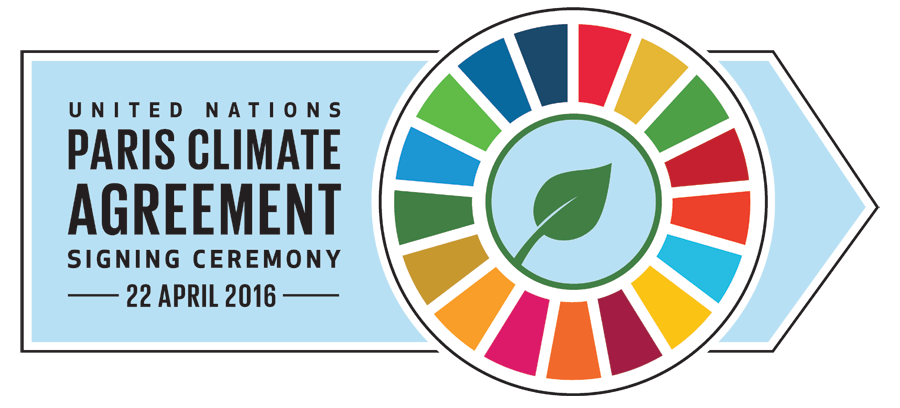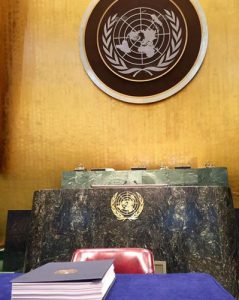Today, 22 April 2016, over 130 countries, including some 60 world leaders, have confirmed they will attend the United Nations headquarters, to sign the Paris Agreement.
The Paris Agreement is a landmark multilateral agreement that, when in force, will see all signatory countries committed to holding the increase in the global average temperature to well below 2 °C above pre-industrial levels and to pursue efforts to limit the temperature increase to 1.5 °C.
22 April 2016 is also the 46th Earth Day, which this year is aiming to plant 7.8 billion trees, encourage divestment from fossil fuels and build renewable energy powered cities. It is estimated that one billion people from around the world will participate in this event. Each of the Earth Day objectives contributes to the ultimate goal of limiting the damage done by climate change and securing the planet for future generations.
The Foundation is represented at the signing ceremony and Mary Robinson is addressing a high level meeting hosted by the Secretary General, Ban Ki Moon and organised with support from the UN Global Compact. The meeting brings together Governments, business, investors, civil society and the UN to demonstrate support from all parts of society for putting the agreement into action.
In her speech at the ceremony Mary Robinson stresses the key justice and human rights considerations countries should attend to when undertaking their obligations under the Paris Agreement. Underscoring these points will be the need for countries to follow up on their signature by completing a full ratification process so as to bring the Agreement into force as swiftly as possible.
Mary Robinson notes that the Paris Agreement, while signalling a willingness to continue to address the problem of climate change, shifted the burden of action onto developing countries by burdening them with actions that will affect their capacity to develop; as a result, those in developed countries have an even greater responsibility to cut emissions further, put a price on carbon and to help finance sustainable development in other regions.
Highlighting the increased prevalence of complaints of human rights violations due to energy projects worldwide, Mary Robinson urges all actors to undertake human rights informed climate action.
Recognising the moral imperative to limit warming to as close to 1.5 degrees as possible in order to protect people living in the most climate vulnerable countries Mary Robinson urges all countries to take more ambitious climate action noting that under countries present commitments the world is not on track to meet this goal, or for that matter the ceiling of two degrees.
Related Links
Our work on equitable sustainable development
Our work on women’s leadership



